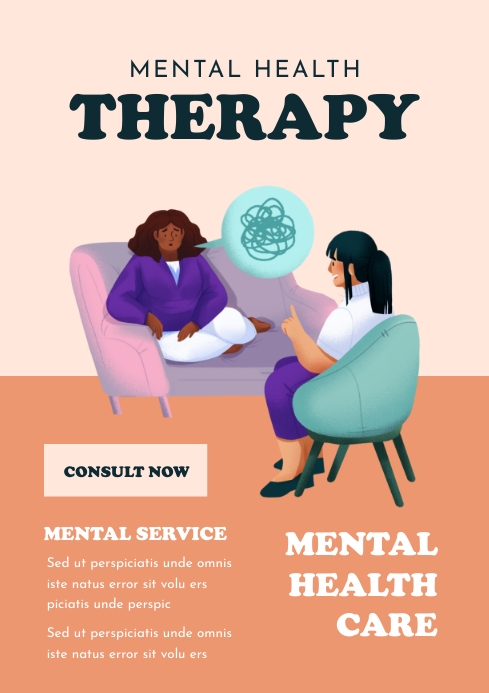A Practical Guide to Starting Cognitive Behavioural Therapy for the First Time
The Value of Mental Wellness: a Deep Dive Into Counseling, Treatment, and Their Advantages
Psychological health and wellness considerably shapes private well-being, affecting thoughts, behaviors, and feelings. Counseling and treatment function as crucial avenues for recovery and individual advancement. They supply structured support, helping individuals browse life's challenges. Several remain uninformed of the particular types of treatment readily available and their special advantages. Understanding these aspects is vital for any person thinking about expert psychological health support. What follows may light up paths to durability and fulfillment that lots of overlook.
Understanding Mental Wellness and Its Influence
Mental wellness is often ignored, it plays an important role in overall wellness and daily functioning - Mental Health Resources. It encompasses psychological, mental, and social elements that influence exactly how individuals believe, really feel, and behave. A person's mental health and wellness directly influences their capacity to deal with tension, associate with others, and make options. Poor psychological health and wellness can lead to different issues, including anxiousness, anxiety, and difficulty in keeping partnerships, all of which can prevent expert and individual growth.Furthermore, psychological health and wellness has significant ramifications for physical wellness. Persistent tension and neglected mental problems can add to numerous physical conditions, such as heart problem and weakened immune responses. Alternatively, positive mental health and wellness promotes strength, allowing people to handle life's difficulties properly. Understanding mental wellness's relevance is vital for fostering encouraging settings that promote emotional wellness, therefore boosting the lifestyle for people and communities alike
The Different Kinds Of Therapy and Therapy
In the domain name of psychological health and wellness, numerous counseling and treatment kinds accommodate diverse requirements. Specific therapy strategies focus on personal concerns via one-on-one sessions, while group therapy dynamics foster shared experiences and support amongst individuals. Comprehending these techniques is vital for selecting the ideal intervention for different obstacles.
Individual Therapy Strategies
Various individual counseling methods exist, each created to resolve particular psychological health concerns and accommodate varying customer requirements. Cognitive Behavior Modification (CBT) concentrates on recognizing and altering adverse thought patterns, while Psychodynamic Therapy explores subconscious processes and previous experiences. Humanistic Treatment emphasizes personal development and self-actualization, fostering a supportive environment. Social Therapy (IPT) targets relationship problems and communication patterns to boost emotional well-being. Additionally, Acceptance and Commitment Therapy (ACT) urges customers to accept their ideas and feelings while dedicating to individual values. Each method offers unique methods and approaches, enabling experts to customize their methods to the individual, consequently improving the therapeutic experience and promoting mental health healing.
Team Therapy Characteristics
Group therapy characteristics encompass different therapeutic approaches that leverage the power of social connections and common experiences. This type of treatment commonly consists of varied teams, promoting a risk-free setting for participants to express feelings and ideas. Secret sorts of team therapy include support system, which give emotional support; process-oriented teams, concentrating on interpersonal communications; and psychoeducational groups, targeted at presenting knowledge regarding psychological health and wellness concerns. The characteristics within these teams can improve self-awareness, as members often review their habits in connection with others. Additionally, group therapy fosters a feeling of belonging, reducing sensations of seclusion. With shared narratives and collective problem-solving, individuals can establish coping techniques and gain understandings, inevitably adding to individual development and healing.
The Role of Counseling in Mental Wellness
Therapy plays an important function in mental health by offering numerous techniques tailored to private demands. These methods give professional guidance that can cause substantial enhancements in emotional wellness. Recognizing the various kinds of therapy can assist individuals make educated choices about their mental healthcare.
:max_bytes(150000):strip_icc()/VWH-MichelaButtignolCounselingFor-MentalHealth-4000x2700-35491a98e57746399614c4ef7f3833a1.png)
Kinds of Counseling Methods
While numerous therapy approaches exist, each deals distinct approaches and understandings right into psychological health and wellness therapy - Marriage Counselling. Amongst the most prominent are cognitive-behavioral therapy (CBT), which concentrates on altering unfavorable idea patterns; psychodynamic therapy, which discovers unconscious processes and childhood experiences; and humanistic techniques, emphasizing personal growth and self-actualization. Additionally, solution-focused quick treatment focuses on locating solutions in today instead than delving into problems. Group therapy fosters neighborhood and shared experiences, while family members treatment addresses relational dynamics within domestic frameworks. Each technique provides to different requirements, straightening with specific choices, problems, and therapeutic goals. Recognizing these strategies assists clients make informed choices concerning their mental health trip and advertises reliable treatment customized to their unique situations
Advantages of Specialist Advice
Many individuals gain from professional guidance in handling their psychological wellness obstacles. Therapy provides a safe room for customers to discover their ideas and feelings without judgment. This restorative atmosphere cultivates self-awareness, allowing people to identify patterns in their actions and develop healthier coping methods. Expert advice also gives accessibility to evidence-based techniques that can relieve signs and symptoms of stress and anxiety, anxiety, and other mental wellness problems. Counselors can assist in setting practical objectives and offer assistance in accomplishing them, enhancing overall well-being. The collective partnership between counselor and customer is necessary, as it promotes responsibility and motivates personal development. Ultimately, specialist advice plays an important duty in steering mental health and wellness journeys, bring about improved emotional durability and life complete satisfaction.
Advantages of Treatment: Recovery and Growth

How to Choose the Right Specialist or Therapist
Exactly how can one navigate the often overwhelming process of choosing the right therapist or counselor? Determining individual requirements is important; individuals must consider their specific problems, whether anxiousness, depression, or relationship difficulties. It is beneficial to study various restorative approaches, such as cognitive-behavioral treatment or psychodynamic treatment, to locate an ideal match.Next, potential customers ought to look for references from relied on sources or use online directory sites. It is vital to evaluate specialists' credentials, including their education, licensing, and locations of field of expertise. Scheduling first examinations can aid gauge compatibility, enabling people to evaluate interaction designs and individual comfort.Finally, logistical elements, such as place, accessibility, and costs, need to likewise be considered. By attentively weighing these components, one can make a notified decision, ultimately cultivating a therapeutic relationship that supports psychological health and wellness and individual development.
Conquering Preconception: Accepting Mental Health Assistance
While societal attitudes toward mental wellness have advanced, stigma still offers a substantial barrier for several looking for support. This stigma commonly shows up as mistaken beliefs bordering mental disorder, leading individuals to feel pity or worry concerning their struggles. Many individuals hesitate to go after counseling or treatment because of concerns regarding being evaluated or classified. Conquering this stigma is fundamental for cultivating a helpful environment where people can openly discuss their mental wellness needs.Communities this link and companies play an essential duty in this improvement by promoting recognition and education and learning about mental health concerns. Campaigns that highlight individual tales can humanize these experiences, motivating others to seek assistance without fear. As approval expands, people might feel a lot more encouraged to accept mental wellness assistance, recognizing it as a crucial element of total wellness. By dismantling preconception, culture can grow a culture of understanding, compassion, and proactive mental healthcare.
Strategies for Preserving Mental Well-Being Outside of Therapy
Although treatment offers useful support, maintaining psychological wellness outside of sessions is just as vital. Individuals can carry out numerous strategies to maintain their mental health. Routine exercise plays an important role, as exercise promotes the launch of endorphins, which boost state of mind. Additionally, a well balanced diet plan abundant in nutrients can greatly impact psychological security and power levels.Practicing mindfulness and meditation aids people manage anxiety and establish greater self-awareness. Developing a consistent sleep routine is likewise essential, as quality remainder is essential for cognitive feature and emotional regulation.Engaging in social activities fosters link and minimizes feelings of seclusion. Pursuing rate of interests or leisure activities can supply an innovative electrical outlet and boost self-worth. Establishing sensible goals and exercising self-compassion permits people to cultivate durability. By incorporating these approaches into daily life, people can efficiently sustain their psychological health past treatment sessions.
Frequently Asked Concerns

Exactly How Can I Inform if I Need Treatment?

Determining the need for therapy usually entails identifying persistent feelings of sadness, anxiety, or overwhelming stress. If everyday working comes to be challenging or coping devices fail, seeking expert support may be a beneficial progression.
What Should I Expect in My First Therapy Session?
In the initial therapy session, people can expect an intro, conversation of their reasons for seeking help, and an overview of the therapist's approach, producing a structure for future discussions and developing convenience in the healing room.
Are Online Treatment Procedure as Effective as In-Person Ones?
Research indicates that online treatment sessions can be as efficient as in-person ones. Aspects such as the therapist's credentials, customer interaction, and the therapeutic connection substantially affect outcomes, no matter the tool used.
Can Therapy Aid With Partnership Issues?
Treatment can help individuals in dealing with connection concerns by providing devices for communication, comprehending emotions, and fixing disputes. Cognitive Behavioural Therapy. It promotes healthier dynamics and urges individual development, eventually promoting more powerful, more fulfilling connections in between companions
For How Long Does Treatment Commonly Last?
Treatment duration varies considerably based on specific requirements and objectives. Usually, sessions might last from a couple of weeks to numerous months, with some people participating in recurring therapy to attend to long-term problems and individual growth. Cognitive Behavioral Treatment (CBT) concentrates on identifying and altering negative thought patterns, while Psychodynamic Treatment discovers unconscious processes and previous experiences. Secret types of team treatment include support groups, which give emotional assistance; process-oriented teams, concentrating on social communications; and psychoeducational teams, aimed at passing on knowledge concerning mental health and wellness problems. Amongst the most noticeable are cognitive-behavioral treatment (CBT), which focuses on changing negative idea patterns; psychodynamic therapy, which explores unconscious procedures and childhood years experiences; and humanistic techniques, emphasizing individual growth and self-actualization. Team therapy fosters neighborhood and shared experiences, while family members therapy addresses relational dynamics within familial structures. It is advantageous to study various healing strategies, such as cognitive-behavioral therapy or psychodynamic treatment, to find an ideal match.Next, potential clients need to look for references from relied on resources or make use of online directories.